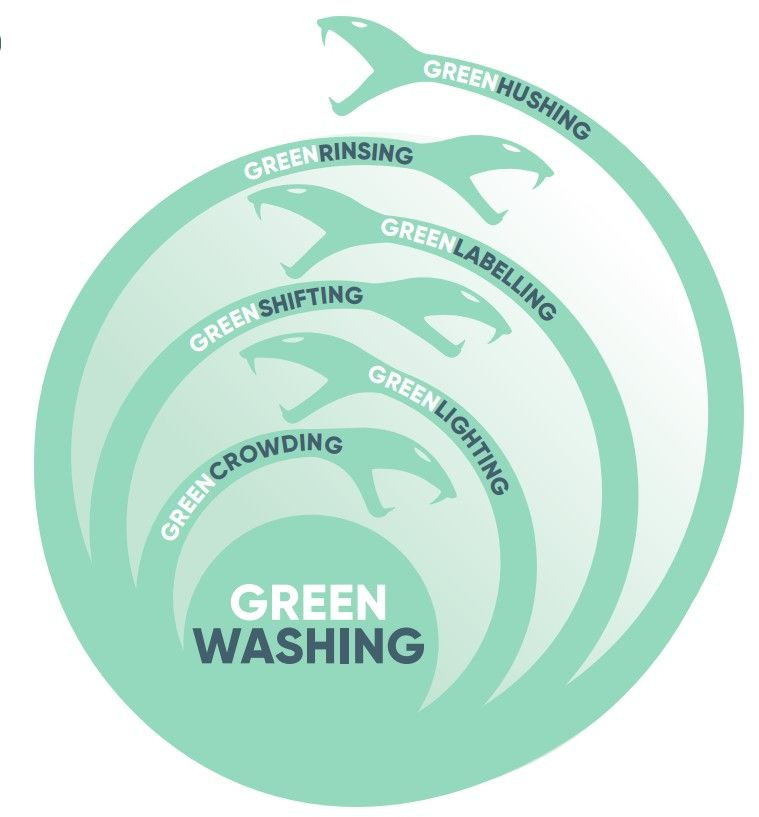The Thread Briefing: in praise of big, the rise of human weirdness and Teen Titans Go!
Some of our best friends are big organisations...
According to ancient celestial prophecies (and MJ’s Greek Nana), today is the last possible day in January that you are able to say Happy New Year, so HNY dear readers! We hope you managed to have a restful break, wherever you are in the world.
Our new year’s resolution is to get this newsletter to you on a more regular basis, so keep your eyes peeled as we experiment with formats and content, and let us know what you like/love/hate.
This fortnight’s issue is focused on the most interesting things we’ve been reading since we returned from our hols. But before that…
:: What’s keeping us busy ::
Here at Thread we’re currently knee deep in a fascinating project improving healthcare supply chains to reduce stock outs and improve health outcomes for patients. It’s about ensuring you design for the people in the system rather than assuming tech will solve everything; it’s about designing new data-informed ways of making decisions that add real value rather than just create extra work; and it’s about creating safe-to-fail experiments in a context that can sometimes be life or death. We’ll be writing up a case study about this soon, but if you’d like to hear more about how we’ve gone about this challenge, please get in touch.
:: What we’ve been reading & thinking about ::
Overcoming bias against bigness:
A short and provocative essay by Kevin Kelly pointing out the tension between a common aversion to big organisations, projects, companies on the one hand, and the challenges we face as a planet and species on the other. Which require solutions that are…not small. [Note to self: maybe we should make some badges here at Thread - “we’re proud supporters of big business”]
Airbnb feels like staying with a cheap, uptight friend – then paying for the privilege:
An early signal of where the market might be going, rather than fact, but it’s one many of us who have stayed in an AirBNB can relate to. The reasons for dissatisfaction with the darlings of the sharing economy are likely multi-faceted: the rise of short-term rentals as an asset class by investors, driving up prices and driving down that personal touch and chance to ‘be a local’ that was the initial brand promise; the fact hotels may have just got their act together and responded by focusing on what they can uniquely do best (cleaning! room service! breakfast!); and the implications of VC-funding, driving growth at all costs and consequently saturating the market for ‘unique experiences’ with generic ones.
The untapped power of Cognitive Diversity:
We founded Thread on the principle of diversity of thought, which is why we’re a distributed global team with colleagues in Shanghai, Copenhagen, Milan, London and Lusaka. In this short article we outline why it’s so important in driving innovation, and why it’s particularly crucial to look outside your organisation in times of crisis and uncertainty.
The permissionless organisation:
We loved this article by uber-strategist Rita McGrath, in particular the idea of 'pushing decision-making to the edges of the organisation', which is very relevant to our work on healthcare supply chains. Also worth reading for some of the nitty gritty points on how to empower teams to actually make better data-informed decisions, drawing on insights from Amazon and elsewhere.
Bureaucratic Mass Index:
And if the idea of permissionless organisations makes you as giddy with excitement as us, then you may also enjoy finding out your organisation’s Bureaucratic Mass Index, and seeing how you compare to over 7000 other organisations. Fill out the 2min survey here and see your results instantly.
The six types of Greenwashing:
Excellent and useful overview providing a new and nuanced vocabulary for spotting bullshit. Including “Greenlighting” (where brands point to a green product feature or aspect of operations to draw attention away from the huge damage being created elsewhere) and “greenlabelling” (where marketers mislead customers by labelling something that suggests green or ethical credentials, when in fact there is none/little).
The (re)emergence of human weirdness!
Despite the plethora of ChatGPT dystopian posts out there, one positive consequence may be a rise in human weirdness and eccentricity as we attempt to distinguish ourselves from machine created content. Check out this essay by Maggie Appleton exploring the implications of the "Expanding Dark Forest' of the web, where the surface layer becomes inhabited mostly by bots and generative AI, SEO-optimised listicles.
Despite the depressing backdrop, Maggie goes on to discuss a number of fascinating implications and responses we might make to better connect with, learn from and relate to real human beings. Some of which feel like a much more interesting place than many parts of the internet have become. (Naming no work-focused social media platforms...🤔)
These include the on-going trend of smaller, closed communities and (anti)social networks such as private whatsapp groups, discord, slack channels etc and more use of sub-culture dialect, faster-evolving memes and increase use of jargon, as we try and stay a step ahead of the web crawling overlords. If one consequence of the rise in generative AI is a counter-balancing rise of clusters of human weirdness, richer forms of communication and deeper pockets of originality, then we’re all for it.👏🏼
This also reminded us of Ian Leslie’s wonderful post on The Struggle to be Human. He eruditely argues that not only have machines got better at mimicking humans, but this has been made easier by the fact that we “humans have been laying the groundwork for bots to take over…by becoming more like the machines.” How best to respond..?
“By taking seriously that which we cannot measure, and that which piques our interest but does not fit our models; by not being too confident in the models we have; by learning to appreciate ambiguity, intuition and mystery; by making room, now and again, for superstition and mad ideas. Above all, by refusing, in whatever game we’re playing, to make thoughtless and predictable moves just because they’re the moves we’ve been taught or conditioned to believe are the correct ones. We should strive to be difficult to model.”
Bravo.
:: Finally, something cheery to combat the January blues ::
Model this, machine!






